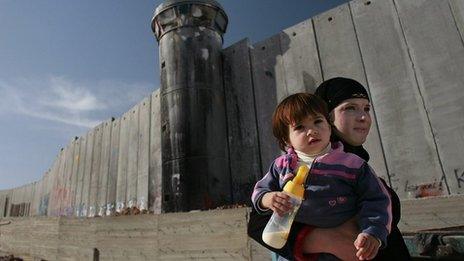Israel and UAE launch direct phone links after historic accord
- Published
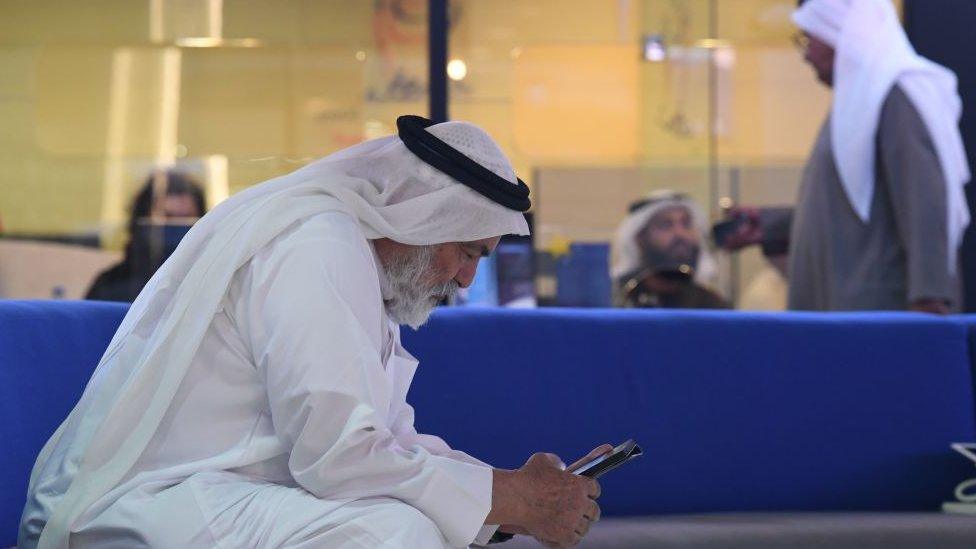
Callers can make now direct phone calls between Israel and the UAE
Israel and the United Arab Emirates (UAE) have inaugurated direct telephone services between their countries following their agreement last week to normalise relations.
The countries' foreign ministers called each other and "exchanged greetings following the historic peace accord", a statement said.
The US-brokered deal was announced by President Donald Trump on Thursday.
It is only the third Israeli-Arab peace treaty in the Middle East.
The international community has mostly welcomed the move, although Palestinians, Iran and Turkey have denounced it.
Under the terms of the deal, Israel has agreed to suspend its controversial plans to annex parts of the occupied West Bank.
Israeli foreign minister Gabi Ashkenazi - who held a call with his Emirati counterpart Abdullah bin Zayed al-Nahyan - tweeted on Sunday that the two sides "decided together on the establishment of a direct communication channel ahead of the signing of the normalisation agreement between the two countries and... to meet soon".
Israel's communications ministry said telecoms providers in the UAE had unblocked calls to numbers with Israel's +972 country code.
Israel annexation: What is the West Bank?
"I congratulate the United Arab Emirates on the unblocking," said Israeli communications minister Yoaz Hendel.
"Many economic opportunities will now open up and these trust-building steps are important for advancing the countries' interests."
The two sides are expected the sign the accord in Washington in three weeks' time. Normalising relations will include opening embassies on each other's territory.
In another sign of the new, closer relationship, the two countries signed an agreement on Saturday relating to Covid-19 research.
Until now Israel has had no diplomatic relations with Gulf Arab countries. But shared concerns over Iran have led to unofficial contacts between them.
President Trump's chief adviser, Jared Kushner, told CBS he and President Trump had been working on a deal between Israel and the UAE since Mr Trump came to office.
Jared Kushner: "This is a dramatic breakthrough that will make the Middle East safer"
The agreement reportedly took Palestinian leaders by surprise. A spokesman for President Mahmoud Abbas said the deal amounted to "treason".
Since Israel's declaration of independence in 1948 it has only signed peace deals with two other Arab countries - Egypt in 1979 and Jordan in 1994. Mauritania, a member of the Arab League in north-west Africa, established diplomatic relations with Israel in 1999 but severed ties in 2010.
Mr Trump has said he expects more Arab and Muslim countries to sign treaties with Israel.
Israeli Prime Minister Benjamin Netanyahu said he had "delayed" West Bank annexation plans, but those plans remained "on the table". Annexation would make some West Bank areas officially part of Israel, dealing a blow for Palestinian plans for a state of their own.
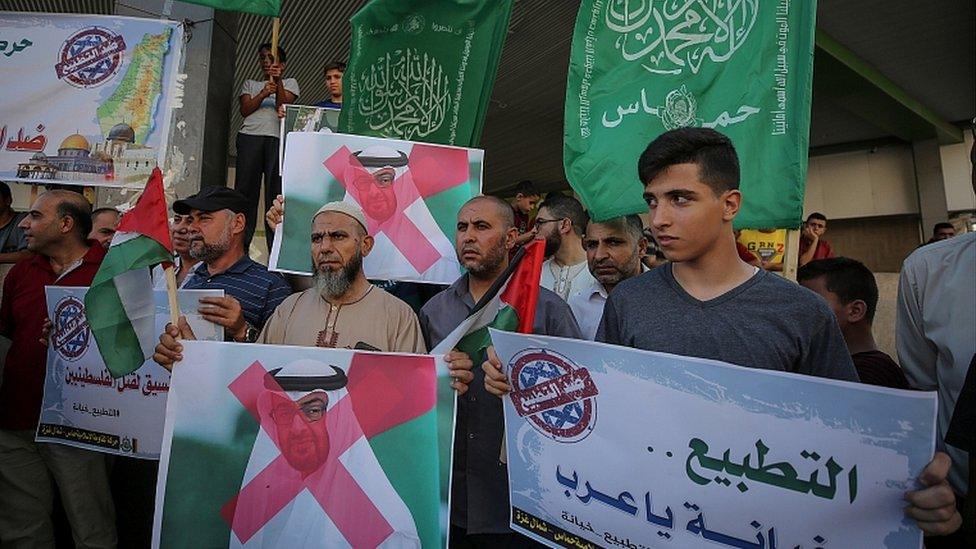
Palestinians in the Gaza Strip protested against the treaty
- Published14 August 2020
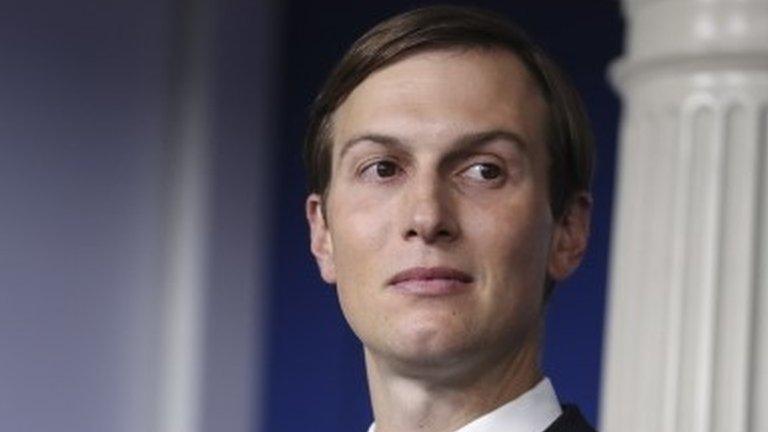
- Published13 August 2020
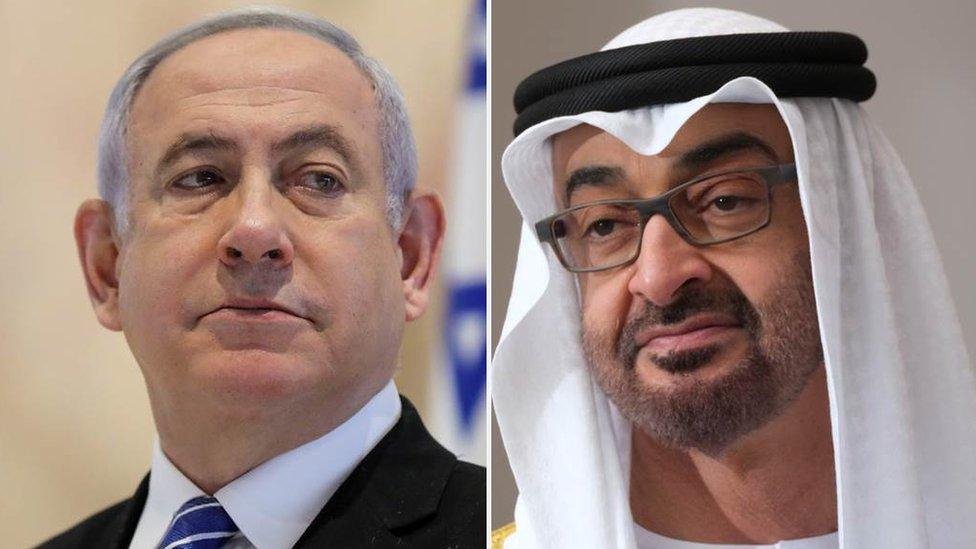
- Published25 June 2020
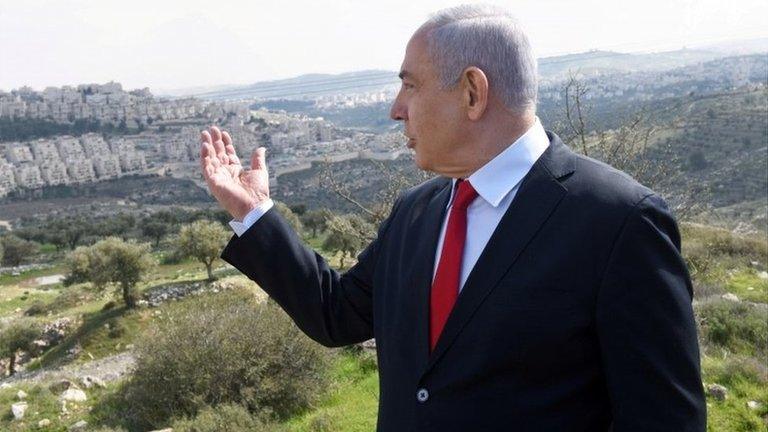
- Published29 January 2020

- Published30 June 2020
